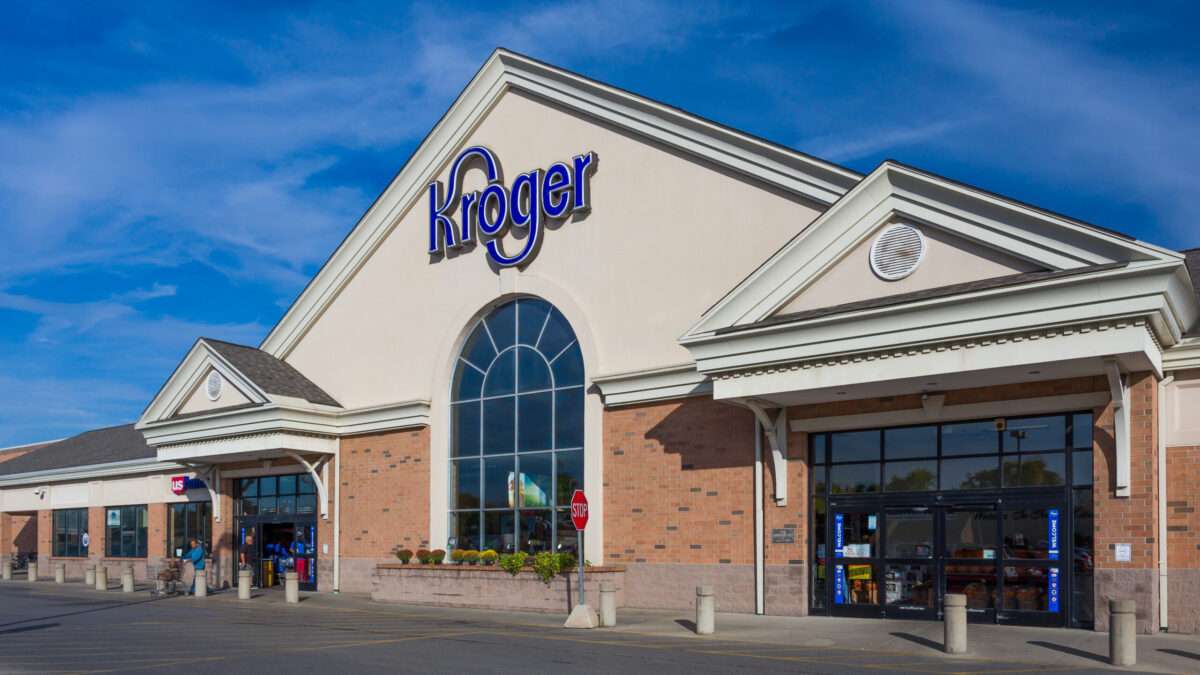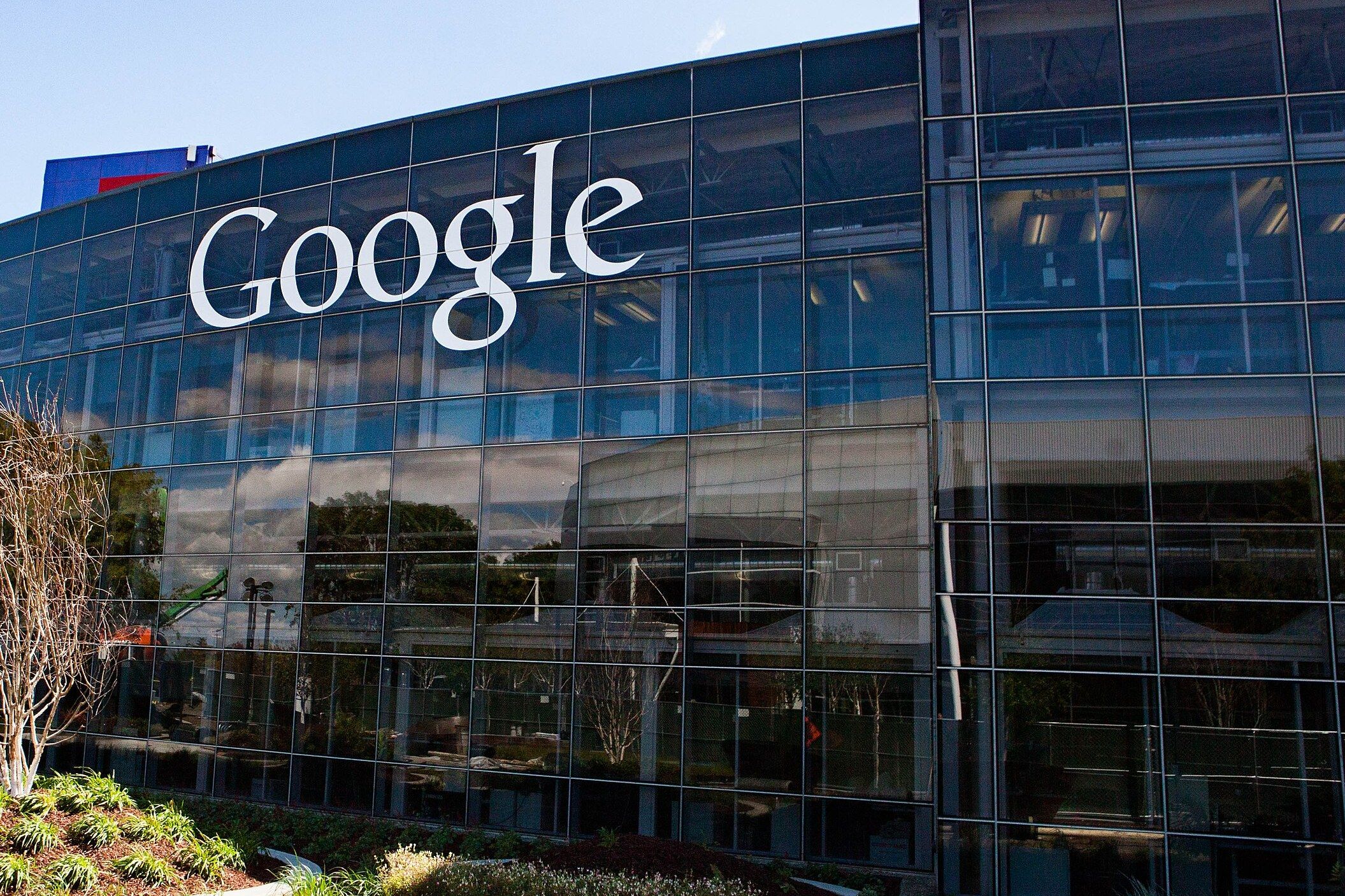Harris Joins the FTC's Food Fight Against Kroger-Albertsons Merger

Amid all the competing headlines of the 2024 election, there may be no more bread-and-butter issue—literally—than how much Americans are paying to put food on their tables. The GOP is gearing up to attack the Biden-Harris administration for escalating grocery store bills, while presumptive Democratic nominee Kamala Harris has now responded with her own plan to fight higher food prices.
One of the hottest items in this political food fight is unquestionably the ongoing litigation from the Federal Trade Commission (FTC) attempting to block the Kroger-Albertsons grocery store merger. A host of Democratic lawmakers recently joined the legal fight, arguing that any potential merger would raise prices, increase food deserts, and disproportionately hurt unionized labor. As part of her new food price plan, Harris included a call for aggressive antitrust crackdowns in the food and grocery industry, mentioning the Kroger-Albertsons merger by name in her speech this week.
None of the arguments against the merger make much sense on the merits, but the FTC—and the Democratic Party writ large—are stacking the legal deck to achieve a predetermined outcome that conveniently aligns with their policy priorities.
The saga started back in October 2022, when The Kroger Company and Albertsons Companies Inc. (the parent company for popular grocery chains like Safeway and Acme, among others) announced their plans for a $24.6 billion merger. The FTC promptly launched a 16-month investigation, culminating in a lawsuit in federal court to block the proposed merger.
Kroger is the fourth-largest grocery store chain in America—behind Walmart, Amazon, and Costco—and Albertsons is the fifth-largest. Once merged, the combined company would rise to third on the list. On the surface, this may seem to provide some support for the FTC's position, but American shoppers would be wise to read the fine print.
In truth, if the deal were to proceed, a merged version of Kroger and Albertsons would still only make up 9 percent of overall grocery sales. To put this in further perspective, consider that Walmart—the nation's largest grocery provider—would continue to operate more stores (including its Sam's Club outlets) than a Kroger-Albertson combo and maintain grocery revenue that is more than twice that of the merged company.
One could easily argue, in other words, that far from being a monopoly, a Kroger-Albertsons joint venture would be the best hedge against potential monopolies forming among the even-more-dominant firms above it on the grocery store food chain. But incredibly, the FTC pretends that two of those larger companies don't exist in the marketplace at all simply by working with their own definitions.
The FTC contends that only local brick-and-mortar supermarkets (what one might think of as a "traditional" grocery store) and hypermarkets (such as Walmart or Target, which sell groceries alongside other goods) count in the market for groceries. This narrow definition completely circumvents wholesale-club stores (such as Costco) and e-commerce companies that sell groceries (such as Amazon).
Given that Amazon and Costco just happen to be the second- and third-largest grocery retailers in the United States, the agency is blatantly gerrymandering the definition of the marketplace. The agency's longstanding position is that the only relevant market is stores where consumers can buy all or nearly all of their weekly groceries, which begs the question: Has anyone at the FTC stepped foot inside a Costco recently? Many Americans use club stores like Costco and BJ's Wholesale Club as their primary grocery stores, with around 15 percent of Americans ages 18–34 reporting that they do most of their grocery shopping at Costco.
Pretending that the internet doesn't exist makes even less sense. As the International Center for Law and Economics notes, 25 years ago a mere 10,000 households took part in online shopping, whereas today 12.5 percent of consumers (or over 16 million people) purchase their groceries "mostly or exclusively" online. Amazon is also preparing to make its own big push into brick-and-mortar grocery retailing as well, with CEO Andy Jassy saying last year that the company must "find a mass grocery format that we believe is worth expanding broadly."
Beyond the FTC's tortured marketplace definitions, its arguments for the alleged harms of a conjoined Kroger-Albertsons are equal parts unconvincing and outdated. In its complaint, the agency points to escalating grocery prices in recent years, and Harris echoed this by stating that she would enact a "ban on price gouging on food and groceries" by directing the FTC to impose "harsh penalties" on grocers. She also pledged to continue aggressive antitrust enforcement in the food sector, going so far as to highlight the Kroger-Albertsons merger as an example of the type of deal that could increase prices. However, as many commentators have pointed out, food price increases likely have more to do with inflation than any lack of competition in grocery markets.
In addition to the consumer price harms the FTC alleges, over half of the agency's legal complaint focuses on the alleged harm the proposed merger would cause to the unionized workers at Kroger and Albertsons. Both companies are heavily unionized—in contrast to Walmart and Amazon—and the agency claims that a combined company would have more leverage over unions given that the unions would no longer be able to play one company off against the other as a negotiating tactic. This glosses over the fact that the demand for labor is particularly competitive in the retail sector broadly, and workers could easily just jump ship to a different employer in the face of any exploitative terms pushed by the merged firm.
A final concern highlighted by some Democratic lawmakers is that a merged company could result in more store closures that lead to geographical areas within which there are few or no grocery options. Once again, this ignores the rise of club stores like Costco and online/home delivery grocery options. These alternatives reduce the plausible areas within which such food deserts can take hold, showing once again a poor understanding of the modern grocery marketplace.
Despite the many dubious underpinnings of the FTC's challenge, it fits with the Biden administration's aggressive antitrust emphasis over the past four years. While some observers were holding out hope that a Harris administration might curtail overzealous antitrust enforcement, her new food price agenda has poured cold water all over that (already wishful) thinking.
The post Harris Joins the FTC's Food Fight Against Kroger-Albertsons Merger appeared first on Reason.com.




